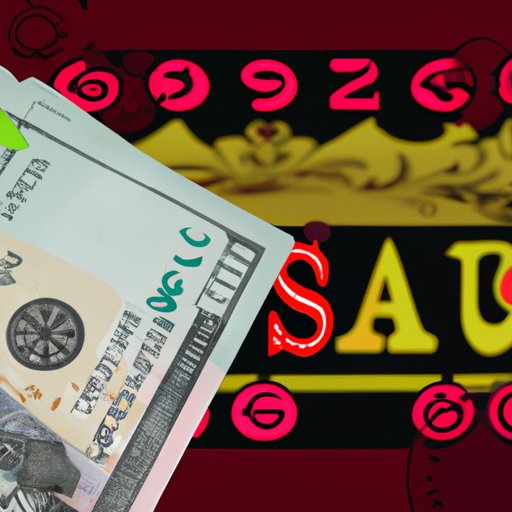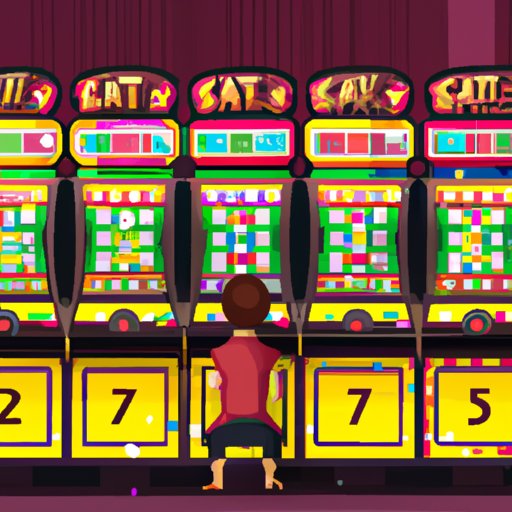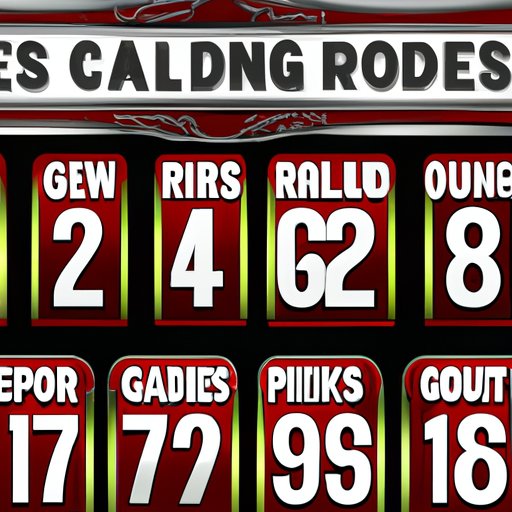Introduction
Age restrictions in casinos refer to the minimum age that a person has to be to legally enter and participate in gambling activities. While this rule may seem simple, it can vary greatly across states and countries, causing confusion and frustration for casino-goers. Additionally, age restrictions reflect complex legal and social issues concerning the regulation of gambling, the protection of minors, and the potential risks and benefits of gambling. This article will explore the question of how old to get into a casino, providing insights into the legal requirements, cultural differences, best practices for casinos, and guidelines for first-time players.
Age Restrictions in Casinos: How Old Do You Have to Be to Play?
The age requirement for gambling varies from state to state and country to country. In the United States, the legal age for gambling is usually 18 or 21, depending on the state and the type of gambling activity. For example, in Nevada, where Las Vegas and many other casinos are located, the minimum gambling age is 21 for all types of gambling, while in Montana, the legal gambling age is 18 for bingo and certain types of slots.
Most casinos require patrons to show a valid ID that indicates their age and identity. Acceptable forms of identification include driver’s licenses, passports, and state-issued IDs. Some casinos may also request a secondary form of identification, such as a credit card.

The Legal Age for Gambling: Why it Differs Across States
There are many factors that influence the legal gambling age, including social, cultural, economic, and political factors. For example, some states may set a higher age limit for certain types of gambling, such as casinos, because they consider them more risky or harmful than other types, such as lottery or bingo. Conversely, some states may set a lower age limit for gambling to attract tourists and boost their economy.
Furthermore, cultural and demographic differences can affect the social norms and attitudes towards gambling, which can in turn influence the legal age limit. For instance, in some Native American tribes, gambling has a deep spiritual and cultural significance, which may lead to different age requirements or exemptions. On the other hand, some religious or conservative groups may view gambling as immoral or indecent, leading to stricter age limits or outright bans.
Gambling: A Rite of Passage or Dangerous Pastime?
The debate over the pros and cons of gambling, particularly among young people, is a complex and controversial one. On the one hand, proponents argue that gambling can be a form of entertainment, a source of revenue for the government, and a way to exercise freedom and personal responsibility. They also claim that gambling can have positive social and psychological effects, such as reducing stress, fostering socialization, and enhancing problem-solving skills.
On the other hand, critics warn of the risks and harms associated with gambling, especially among vulnerable populations such as minors, low-income individuals, and those with addictive tendencies. They note that gambling can lead to addiction, financial instability, social isolation, and even criminal behavior. Moreover, they argue that gambling can exploit human weaknesses, foster inequality, and erode the social fabric.
As a result of these divergent views, the legal age for gambling has been the subject of heated debates and controversies, with some advocating for raising the age limit to 25 or higher, and others urging for lowering it to 16 or lower. Ultimately, the decision about the appropriate age for gambling depends on many contextual and normative factors, and may need to be revised periodically based on new evidence and feedback.

A Guide to Preparing for Your First Casino Experience
If you are planning to visit a casino for the first time, there are several things to keep in mind to make your experience enjoyable and safe. First, establish a budget and stick to it, to avoid overspending or losing more money than you can afford. Plan ahead the games you want to play and learn the rules and strategies, to avoid confusion or disappointment. Dress appropriately and follow the dress code of the casino, to avoid being turned away or feeling out of place.
Second, be aware of the casino etiquette and rules, such as avoiding taking photos or videos, refraining from smoking in non-smoking areas, and respecting the dealers and other players. Don’t be afraid to ask for help or advice from the staff or other players, especially if you are a beginner or unfamiliar with the game.
Finally, prioritize your safety and well-being, by staying sober, taking breaks, and avoiding risky or dangerous behavior. If you encounter age restrictions or other issues, don’t panic or try to sneak in, but ask the staff or security for clarification or assistance.
Dealing with Underage Gamblers: Best Practices for Casinos
Ensuring that the casino is free from underage gambling is crucial not only for legal compliance, but also for ethical and social reasons. Casinos have a responsibility to protect vulnerable individuals from harm and to maintain the integrity of the gambling industry. To achieve this goal, most casinos employ strict ID verification procedures and surveillance systems, to check the age and identity of each person who enters the casino and to monitor their behavior and activities.
If a casino suspects that a person is underage, it may first attempt to verify their age by asking for a second form of identification or seeking confirmation from the parents or guardians. If the person is indeed underage, the casino will refuse to serve them and may confiscate their winnings or impose penalties, such as fines or bans. Additionally, the casino may report the incident to the local authorities and cooperate with law enforcement to prevent future violations.

From Slot Machines to Online Gambling: The Changing Age Limits of the Gaming Industry
The advent of digital technologies and the globalization of the gaming industry have introduced new challenges and opportunities for regulating the age limits of gambling. Online gambling, for example, has made it easier for minors to access and participate in gambling activities, as it is often less regulated and monitored than traditional casinos. Additionally, online gambling has expanded the range and types of games available to players, creating new forms of addiction and harm.
On the other hand, digitalization has also enabled casinos and regulators to improve their age verification and surveillance systems, by using biometrics, AI, and other tools. Moreover, digital platforms, such as social media and gaming apps, can be used to educate and inform young people about the risks and benefits of gambling, and to promote responsible gambling behaviors.
Conclusion
In conclusion, the question of how old to get into a casino is a multifaceted one that raises legal, social, and ethical issues. While the legal age for gambling varies across states and countries, the common goal is to protect minors from harm and to ensure the integrity of the gambling industry. Whether you are a first-time casino goer or a seasoned player, it is important to be aware of the age restrictions, cultural differences, and best practices for gambling. By doing so, you can enjoy the excitement and thrill of gambling while staying safe and responsible.
